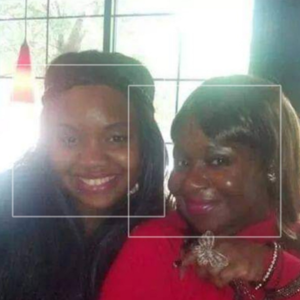1,000 signatures reached
To: Judge Spiros S. Ferderigos
#FreeMama Ban Debtors' Prison in Charleston, SC
.png)
The citizens of South Carolina were handed a victory on January 23 in a decision from the 4th Circuit Court of Appeals. The case, brought by the ACLU of South Carolina and the ACLU’s Racial Justice Project, Brown v. Lexington County challenges South Carolina’s ongoing practice of jailing people too poor to pay fines or fees, something traditionally known as “debtors’ prisons.” We argue that two state judges and a sheriff have been running debtors’ prisons, which have been deemed unconstitutional. "
This was a victory for South Carolina but we the people will have to present this case in all circuits to have this unconstitutional practice of debtors' prison eradicated.
Current example of debtors' prison in Charleston County 9th circuit. Judge Spiros. S. Ferderigos granted an attorney request to put Katie Page in jail for failure to pay a debt to an attorney of whom she was not a client and is being held liable for legal fees not beholden to her.
Katie Page missed her eye surgery, scheduled for Friday August 6 due to her being unlawfully sent to jail and sentenced to 180 days without a bond on Tuesday august 3rd. Katie did not commit a crime. Her only "crime" is poverty.
Covid 19 numbers are rising in Charleston and Jamal Sutherland, a Black man with a history of mental illness, died at this same Charleston County jail on Jan. 5 shortly after jail deputies repeatedly fired their tasers at him.
Stand on the side of true justice and help liberate Katie "Mama" Page and all impoverished people from debtors' prison
Demand Judge Spiros. S. Ferderigos release Katie Page and other impoverished citizens who are currently incarcerated in Charleston County Detention center for a debt which is not a crime and already been deemed unconstitutional.
This was a victory for South Carolina but we the people will have to present this case in all circuits to have this unconstitutional practice of debtors' prison eradicated.
Current example of debtors' prison in Charleston County 9th circuit. Judge Spiros. S. Ferderigos granted an attorney request to put Katie Page in jail for failure to pay a debt to an attorney of whom she was not a client and is being held liable for legal fees not beholden to her.
Katie Page missed her eye surgery, scheduled for Friday August 6 due to her being unlawfully sent to jail and sentenced to 180 days without a bond on Tuesday august 3rd. Katie did not commit a crime. Her only "crime" is poverty.
Covid 19 numbers are rising in Charleston and Jamal Sutherland, a Black man with a history of mental illness, died at this same Charleston County jail on Jan. 5 shortly after jail deputies repeatedly fired their tasers at him.
Stand on the side of true justice and help liberate Katie "Mama" Page and all impoverished people from debtors' prison
Demand Judge Spiros. S. Ferderigos release Katie Page and other impoverished citizens who are currently incarcerated in Charleston County Detention center for a debt which is not a crime and already been deemed unconstitutional.
Why is this important?
IN COUNTIES THROUGHOUT SOUTH CAROLINA, PEOPLE WHO CAN’T AFFORD COURT FINES FOR TRAFFIC AND OTHER LOW-LEVEL OFFENSES GO TO JAIL, WITHOUT CONSIDERATION OF THEIR FINANCES AND WITHOUT LEGAL REPRESENTATION
“I was locked up for 57 days because I couldn’t pay my traffic fines,” said plaintiff Twanda Marshinda Brown, a single mother who lives with her children in Section 8 housing. Brown was working at a fast food restaurant and made payments toward her fines, but when she fell behind, she was arrested and incarcerated. “It was devastating for me and my kids.”
In the latest front in the nationwide fight against debtors' prisons, on June 1, 2017, the American Civil Liberties Union filed a federal lawsuit challenging the illegal arrest and incarceration of poor people in Lexington County, South Carolina, without a hearing or representation by counsel. Victims can avoid jail only if they pay the entire amount of outstanding court fines and fees up front and in full. Indigent people who are unable to pay are incarcerated for weeks to months without ever seeing a judge, having a court hearing, or receiving help from a lawyer. The result is one of the most draconian debtors’ prisons uncovered by the ACLU since 2010.
The poverty rates for Black and Latino residents at more than double the rate for white residents in the county.
Its not enough to be quietly nonracist, we must be vocally and actively antiracist.
“I was locked up for 57 days because I couldn’t pay my traffic fines,” said plaintiff Twanda Marshinda Brown, a single mother who lives with her children in Section 8 housing. Brown was working at a fast food restaurant and made payments toward her fines, but when she fell behind, she was arrested and incarcerated. “It was devastating for me and my kids.”
In the latest front in the nationwide fight against debtors' prisons, on June 1, 2017, the American Civil Liberties Union filed a federal lawsuit challenging the illegal arrest and incarceration of poor people in Lexington County, South Carolina, without a hearing or representation by counsel. Victims can avoid jail only if they pay the entire amount of outstanding court fines and fees up front and in full. Indigent people who are unable to pay are incarcerated for weeks to months without ever seeing a judge, having a court hearing, or receiving help from a lawyer. The result is one of the most draconian debtors’ prisons uncovered by the ACLU since 2010.
The poverty rates for Black and Latino residents at more than double the rate for white residents in the county.
Its not enough to be quietly nonracist, we must be vocally and actively antiracist.

